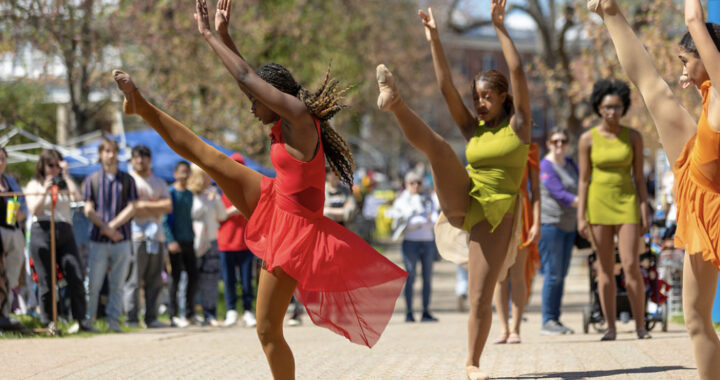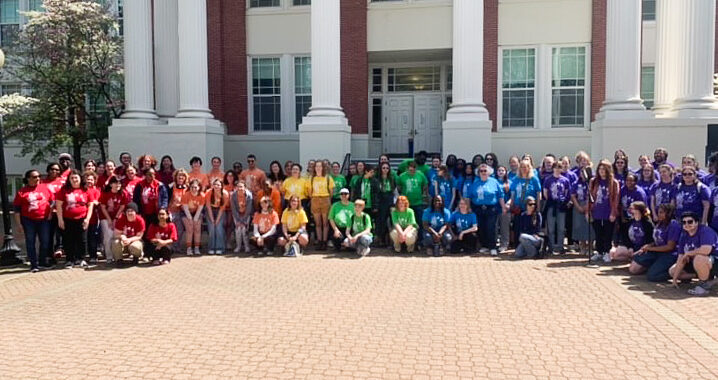New course prepares students to teach children with autism
3 min readThe UMW Autism Clinic and Play Lab will open its doors in October, offering both support for children with autism and related disabilities and a hands-on opportunity for UMW students enrolled in the course “Special Topics in Education: Autism” to experience working with children with disabilities prior to entering the workforce.
Nicole Myers, a professor in the Special Education department, and her colleagues developed the idea for the Clinic and Play Lab because, “many more children [are] getting diagnosed with autism and related disabilities [than] in the past and [we needed] to help prepare our students to work with children with more severe disabilities such as intellectual disabilities and autism.”
Although many universities offer courses specifically related to autism, Myers wanted to go a step further and introduce the Teaching Students with Autism Certificate.
According to Myers, “the certificate was developed with collaboration from Commonwealth Autism Service by faculty in Special Education, Instructional Design and Technology, and Psychology as a result of a $36,000 grant award from the university.”
Once the new certificate was approved, Myers received a Jepson Fellowship, which allowed her to teach part-time while researching “local autism related needs and [developing] plans for the UMW Autism Clinic and Play Lab.” After a year spent researching and designing a special curriculum, the Play Lab was approved.
The clinic is open to students of all ages who are diagnosed with autism, ADHD, and other intellectual disorders.
Undergraduate seniors and graduate students at UMW enrolled in the course will spend the first few weeks of the semester training in “research-based play strategies” before volunteering at the clinic under the supervision of Myers and other Special Education professors.
Anyone can take the course, even if they are not seeking a degree in Special Education.
Myers stressed, “If a teacher or someone working in the community has an interest in the Play Lab and this course, they can register for it provided they already have a bachelor’s degree. We want folks from community agencies taking this course.”
Already Myers has made a strong connection with the community, both at UMW and in the Fredericksburg area.
The use of the facility for the Play Lab, located in Stafford, is actually going to be free, thanks to its involvement with Helping Hands Pediatric Occupational Therapy. They’ve also received a number of donations from different organizations in the community, raised money through various events on campus, and worked with a UMW business class last spring to hold fundraisers at Chick-fil-a and McDonalds.
The Knights of Columbus awarded the Play Lab a $20,000 grant, allowing it to run for its first two sessions this upcoming school year. Unfortunately, according to Myers, this grant generally focuses on starting new projects so they still must continue to look for a more permanent source of funding for the future.
They have been participating in the Pepsi Refresh grant contest, where anyone can vote on various organizations to receive a $20,000 grant, but Myers is not optimistic about being in the top 10 for the grant by the Aug. 31 deadline.
“However,” Myers said, “the Pepsi Refresh publicity has allowed us to get the word out about the UMW Play Lab and to receive some other donations.”
Myers also plans to raise awareness through a variety of events the Play Lab will sponsor this year. There will be a UMW Autism Brown Bag Series, which will offer free presentations on disability issues, and Daybreak, a respite program where UMW students run educationally based programs for kids with disabilities with the help of The Arc of Rappahannock.
Additionally, every April UMW hosts the Community Disability Fair, where people come to campus and host tables that get the word out about different organizations.
On September 11-12 Tattoo Revival, located downtown, will be donating 100% of its proceeds to the Play Lab. So, anyone out there planning on a new tattoo should consider holding off a few weeks and supporting this excellent cause.
Myers hopes to see this project grow over the next few years into a fully funded program with a permanent location on the UMW campus. Ultimately, Myers would like to see UMW have a permanent impact on the disability community in the area.











